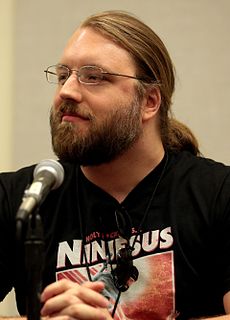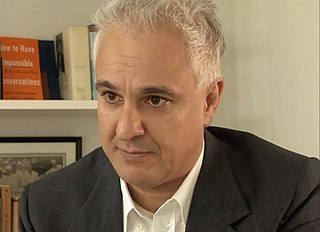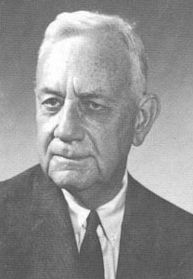A Quote by Robert Trout
The myth that John Locke was the philosopher behind the American Republic, is easily refuted by examining how Locke's philosophy steered Thomas Jefferson, for example.
Quote Topics
Related Quotes
... It's perfect! Locke would appreciate it." "Bug," Calo said, "Locke is our brother and our love for him knows no bounds. But the four most fatal words in the Therin language are 'Locke would appreciate it.'" "Rivalled only by 'Locke taught me a new trick,'" added Galo. "The only person who gets away with Locke Lamora games ..." "... is Locke ..." "... because we think the gods are saving him up for a really big death. Something with knives and hot irons ..." "... and fifty thousand cheering spectators.
Liberalism is a creation of the seventeenth century, fathered by British philosopher John Locke (1632-1704). For Locke, liberalism means limited government, the rule of law, due process, liberty, freedom of religion, freedom of speech, freedom of the press, freedom of assembly, separation of church and state, and separation of government powers into branches that oversee each other's authority.
I am Plato's Republic. Mr. Simmons is Marcus. I want you to meet Jonathan Swift, the author of that evil political book, Gulliver's Travels! And this other fellow is Charles Darwin, and-this one is Schopenhauer, and this one is Einstein, and this one here at my elbow is Mr. Albert Schweitzer, a very kind philosopher indeed. Here we all are, Montag. Aristophanes and Mahatma Gandhi and Gautama Buddha and Confucius and Thomas Love Peacock and Thomas Jefferson and Mr. Lincoln, if you please. We are also Matthew, Mark, Luke, and John.
John Adams and Thomas Jefferson corresponded for 13 years before they died on the same day. They asked, "How can one have prosperity without commerce? How can one have commerce without luxury? How can one have luxury without corruption? How can you have corruption without the end of the Republic?" And they really didn't know the answer.
The theory of social contracts extends as far back as Plato. However, it was the great 18th century social philosophers John Locke, Thomas Hobbes, and Jean-Jacques Rousseau who brought the concept of a social contract between citizens and governments sharply into political thinking, paving the way for popular democracy and constitutional republicanism.
I spoke to Tom's [Hardy] manager and said, "While we're talking about Taboo, do you mind if I also mention this film project that I've got, which is called Locke, and I need Tom to play the lead." And we spoke about both in that meeting and in the end the deal was that I would do Taboo if he did Locke and vice versa.





























